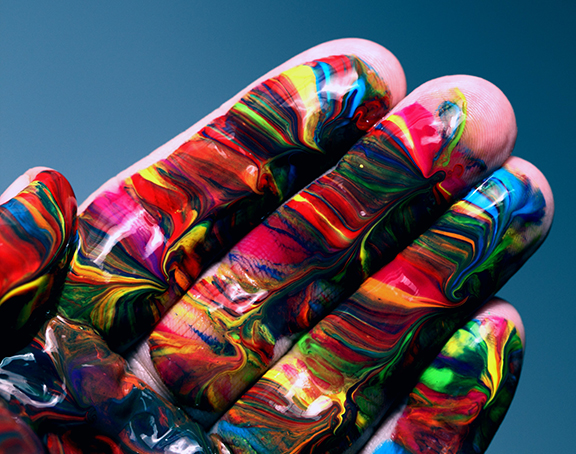He’s got the whole world, in His hands…
I learned this song so long ago that I actually don’t remember learning it. It seemingly came with my default operating system: a part of parochial school programs, summer camps, and Sunday school lessons. On its face, the heart of the song is steadying and beautiful: everyone and everything and everywhere is OK, because God’s got it covered. All of Creation is safe, including you. But there is an odd caveat imbedded in the lyrics that I didn’t recognize for decades: yes, God is glorious and wondrous; limitless in beauty, unfathomable in scale, beyond our collective comprehension—but also a dude.
God the Father.
God the man.
God, the He of He’s.
Throughout my life, I was taught that God most certainly was all of those things and it has taken decades to comprehend how toxic, how dangerous, and how limiting an idea that was—and to begin to have God renovated in my head.
Growing up, the idea of God as a white-bearded older gentleman was impossible to avoid. I lived for forty years with a decidedly male, Sistine Chapel God, and for most of that time it worked for me (as a white male, of course, it would). It seemed perfectly reasonable to accept the pronouns for the Almighty handed down by my parents and Sunday school leaders.
There are all sorts of factors that could explain the prevalence of a specifically-gendered biblical God: translation issues from the original languages, cultural gender bias in the compliers and curators of the library of books that became the Bible, or perhaps Jesus’ desire to make God approachable and relatable, using the kind of patriarchal figure people valued so highly at the time.
Ultimately though, identifying the precise reasons why the Scriptures so often present a male creator are less important than simply confronting the old assumptions, looking at them with fresh eyes, and asking: does a single-gendered God make any sense and does it yield a more equitable world and a more loving religion?
Does our inherited narrative of an old man running things, as comfortable or familiar as the image may be for some of us, pass the smell test? If we can imagine God outside of the narrow confines of gender, doesn’t that yield something more revelatory and wondrous?
If God is God, I’m not sure that God can be defined by or contained within a traditional gender definition—actually, I’m sure that’s impossible. If all human beings are indeed made in the image of God, then God embodies and contains and transcends every current understanding we have of the complex continuum of gender.
The only way every disparate human being could be equally and fully made in the likeness of God (if we are to use the same Bible these homophobic/transphobic Christians use), is if God both transcends and encompasses gender. If God is both male and female and neither male nor female—then this God is decidedly nonbinary and gender-fluid.
The truth is, even though the Bible appears on the surface, to reflect a limited and predominantly binary understanding of human sexuality befitting its ancient genesis, it uses images of and language for God, that aren’t strictly male:
Can a woman forget her nursing child, or show no compassion for the child of her womb? Even these may forget, yet I will not forget you. (God speaking in Isaiah 49:15).
As a mother comforts her child, so will I comfort you; and you will be comforted over Jerusalem. (God speaking in Isaiah 66:13.)
But I have calmed and quieted myself, I am like a weaned child with its mother; like a weaned child I am content. (David, speaking of God in Psalm 131:2.)
Jerusalem, Jerusalem, you who kill the prophets and stone those sent to you, how often I have longed to gather your children together, as a hen gathers her chicks under her wings, and you were not willing. (Jesus speaking in Matthew 23:37.)
Ruach, the name for the Spirit of God in the original Old Testament Hebrew is feminine. The femininity of God is everywhere.
Divinity transcending one gender is as biblical as it gets.
Ultimately, understanding God as merely a cisgender, heterosexual man shrinks God into something comfortable, something easily managed—and something far too small to be God. If we really believe a single source formed every human being who has ever walked the planet and that each of these people bears the DNA of their Creator, we’re going to need to rethink the story we inherited.
Maybe, rather than shrinking God, we need to release God from that confining space inside our heads. Maybe we should expand our very image of God in a way that argues with our learned theology, because if we do, it might make us far more willing to treat the diverse humanity that crosses our paths with the reverence and respect each one of them deserves—as made of God.
God is decidedly nonbinary and transcends restrictive gender confines, and that’s really good news because it means that we can discover the character of that God in every human being we encounter without exception.
It’s intellectually dishonest to say that all human beings are image-bearers of the Divine and created in God’s likeness—and yet insist that that creator is a dude. God has to transcend gender and that’s a beautiful idea to settle into, because the scope and capacity of our love grows exponentially as a result. We become more liberal in our sharing of that love and less apt to withhold affection or compassion to anyone, because we recognize they are all equally fashioned by the same Maker we are.
We don’t need to believe that “He” has the whole world in “His” hands.
We just need to trust that we are held.
This piece includes excerpts from John’s forthcoming book ‘If God is Love, Don’t Be a Jerk.’




